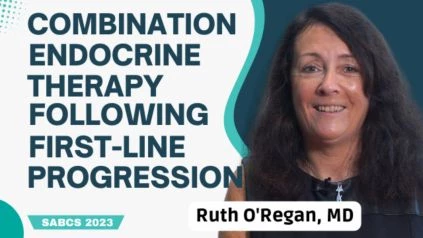By. Ruth O’Regan MD
Date: 12/07/2023
In an interview, Ruth O’Regan MD addresses questions related to the use of CDK4/6 inhibitors in the treatment of metastatic ER+ breast cancer. As an authority in the field, Dr. O’Regan provides perspectives on the ongoing debate regarding the similarities and differences among these inhibitors and their impact on patient outcomes.
The first question explores the debate on whether CDK4/6 inhibitors exhibit distinct characteristics in terms of efficacy, given their known improvements in progression-free survival and overall survival. Dr. O’Regan discusses the nuances of this debate, providing an understanding of the variations among these inhibitors and their potential implications for patient care.
Moving to the early-stage setting, the second question delves into the variations in effectiveness and toxicities among CDK4/6 inhibitors. Dr. O’Regan elaborates on the clinical implications of these differences, offering insights for clinicians striving to choose the most suitable CDK4/6 inhibitor tailored to the individual needs of their patients.
The third question explores the strengths and weaknesses of the three prominent CDK4/6 inhibitors used in advanced breast cancer. Dr. O’Regan navigates through the absence of direct head-to-head comparison data, providing an understanding of how these factors influence clinical decision-making. She discusses the utility of these inhibitors as essential tools for treating patients, emphasizing their distinctive attributes.
The fourth question delves into the importance of understanding CDK4/6 inhibitors for informed decision-making. Dr. O’Regan outlines the specific factors that researchers and clinicians should consider when evaluating the differences among these inhibitors, highlighting the critical aspects that contribute to optimal patient outcomes.
The final question explores the potential implications of one CDK4/6 inhibitor proving effective in the early-stage setting while another does not. Dr. O’Regan engages in a discussion on the implications for treatment strategies in early-stage ER+ breast cancer, offering insights that contribute to the ongoing dialogue in the field.
Overall, Dr. Ruth O’Regan MD provides an exploration of the complexities surrounding CDK4/6 inhibitors, offering knowledge to researchers, clinicians, and the broader medical community.

